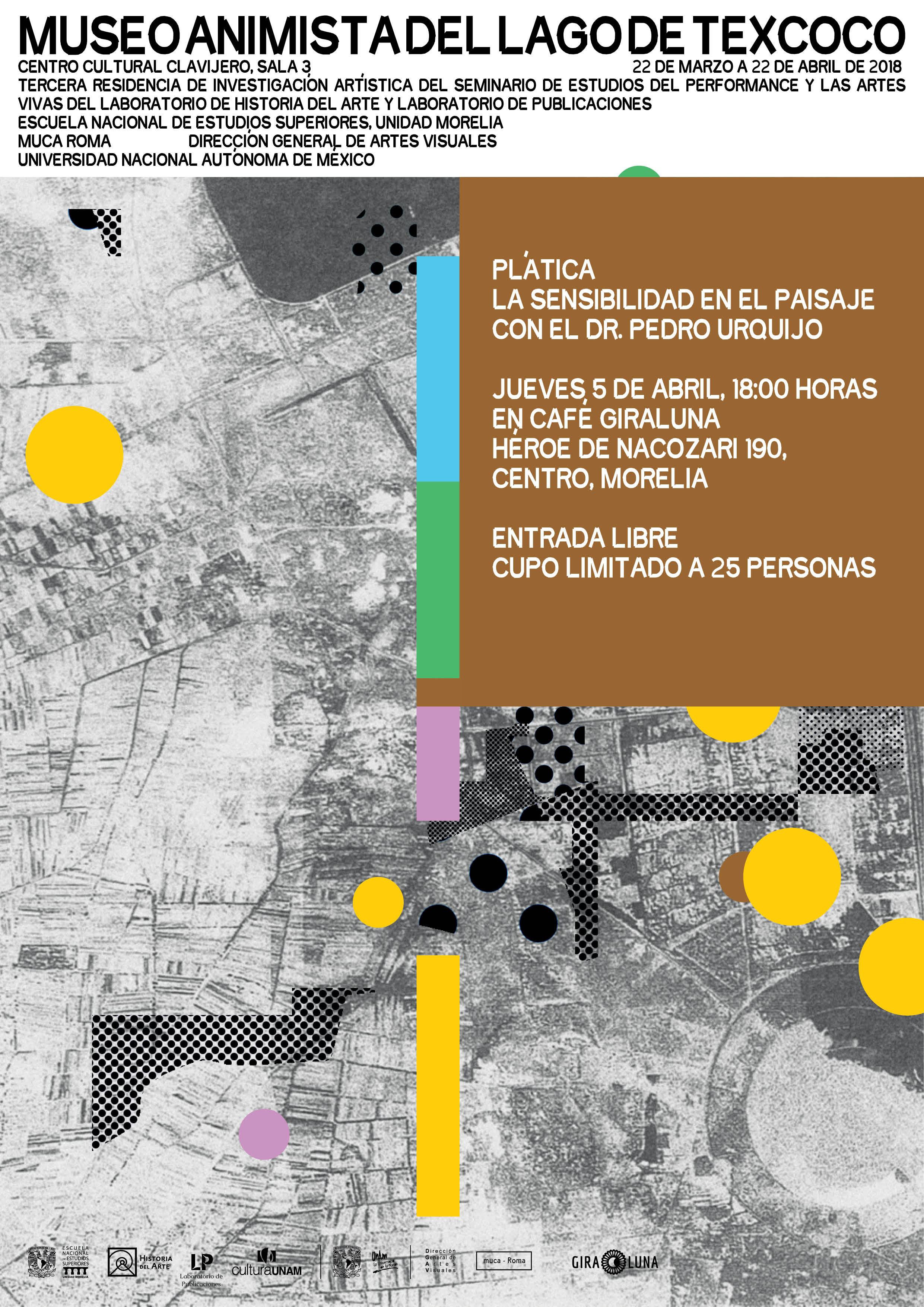The public program of the Animist Museum of Lake Texcoco seeks to understand the problems inherent to Mexico City and its surroundings as a system of structural, historically grounded, interspecies, inter-geographic, and inter-institutional phenomena: an intermingled array of situations which require a congregation of different perspectives to be fully understood. The unequal water distribution policies affecting an entire city; the dispossession caused by an airport; the failed urbanization of its territory; the ecological affectations within apparently isolated environments; the effects of earthquakes; the collapse of buildings are all intertwined: in order to grasp the meaning of one problem, one must firstly examine its part within a large, rapidly changing and complex "totality".
This program has been co-curated by Muca Roma, Ariadna Ramonetti [Islario], and Adriana Salazar.
Cartographies of the lacustrine region
August 30, 6pm: conversations with Emiliano Zolla, Ariadna Ramonetti [Islario], and Adriana Salazar
September 6, 6pm: Conversations with Luis Morett and Patricia Muñoz
September 20, 6pm: "GeoComunes. Collaborative mapping for the defense of common goods." With Adrián Flores and Valeria C. de Pina Ravest
September 21, 12pm: "Parallels between Lake Texcoco and other international conflicted contexts" with Dina Saja from the collective Cunci Cultural Studies (Indonesia)
Geo-biological ecology
Oct 4, 6pm: "I prefer the lake" by Fernando Cordova Tapia (Union of Scientists Committed to Society)
Oct 5, 8am: Visit to the Lake Texcoco Ecological Reserve (this event requires registration)
Oct 11, 6pm: The environmental devastation suffered by ancient Lake Texcoco, a conversation with Juan José Reyes and Miguel Sámano
Oct 18, 6pm: "The importance of birds and the lacustrine ecosystem in Lake Texcoco. What do they think?” by Patricia Escalante
Oct 24, 6pm: Conversations with Atenco’s Front of Peoples in Defense of the Land (FPDT)
Social ecology
Oct 27, 10am: Experimentation workshop: reconfiguring the ancient Valley of Mexico, with Pequeños Misterios and Carlos Gamboa
Nov 8, 6pm: " Material culture from an Anthropological and other perspectives" with Anne Johnson
Nov 15, 6pm: Screening of "The water of the Earth and Sky in the Acolhuacan Septentrional" and "The Absent Hills” with Jorge Martínez, Manuel Moreno and David Robichaux
Political ecology
Nov 29, 6pm: Conversations about the politics of artistic research with David Gutiérrez and Adriana Salazar
December 6, 6pm: Conversations with Julieta Lamberti of the Project Organization, Development, Education and Research (PODER)








